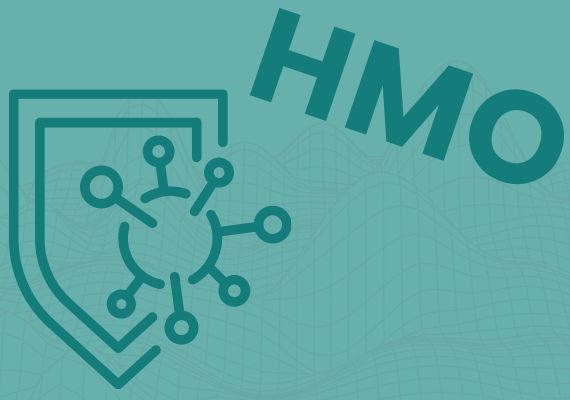Your Cart is Empty
Human Milk Oligosaccharides Modulate Immune Function
According to research on HMOs, in addition to their impacts on the microbiome, HMOs also have the capacity to directly and indirectly modulate human immune functions. It’s been long observed that HMOs seem to protect breastfed infants against microbial and viral infections.
The protective effect, such as the anti-pathogenic and anti-inflammatory effects, have been found to be exerted through enrichment of the protective gut microbiota, cell signaling and cell-to-cell recognition events, the modulation of microbial adhesion, and the interaction with the infant intestinal mucosa.
Studies have found that infants fed formula supplemented with selected HMOs exhibit a pattern of inflammatory cytokines closer to that of exclusively breastfed infants.

Human Milk Oligosaccharides Acting as Decoys to Block Pathogens and Viruses
HMOs have been shown to prevent adhesion of several potential pathogens to epithelial surfaces in the intestines and other organs by acting as decoy receptors for bacterial pathogens like Campylobacter or E. coli.
HMOs can also have effects on viral pathogens as rotavirus, norovirus, and HIV. The HMO 2′-FL was shown to decrease RSV viral load, whereas LNnT and 6′SL decreased influenza viral load. Also, effects were observed on innate cytokines in response to both viruses suggesting an effect of HMOs on respiratory virus infection.
This is supported by an early study by Stepans- Flanders on the fact that HMO consumption is inversely linked to respiratory infection. In this study higher LNFPII levels in breastmilk correlated with decreased respiratory and gastrointestinal infections in early infancy. Immobilized 3′SL and 6′SL haven been shown to prevent infectivity of influenza viruses as a result of blocking the haemagglutinins of influenza viruses.
Immune Support Beyond Infancy
HMOs may modulate neonatal immunity by altering host epithelial and immune cell responses in the infant gut, modify immune responses systemically or act as soluble decoy receptors to block the attachment of various microbial pathogens to cell surface receptors, not only in the intestine but also in other sites such as the urinary tract.
The benefits of HMOs can extend to health outcomes beyond infancy such as allergies or cognitive functions, making HMOs the focus of intense current scientific research with increasing number of studies unraveling their role in human physiology.
Several classes of lectins, glycan-binding proteins secreted by human immune cells, have been described in the literature and can help regulate immune responses, such as galectins, siglecs, c- type lectins, and selectins. HMOs can bind to these lectins on human cells, primarily expressed on cells of the immune system. Binding of HMOs to these receptors results in regulation of adaptive and innate immune protection against infection and inflammation.